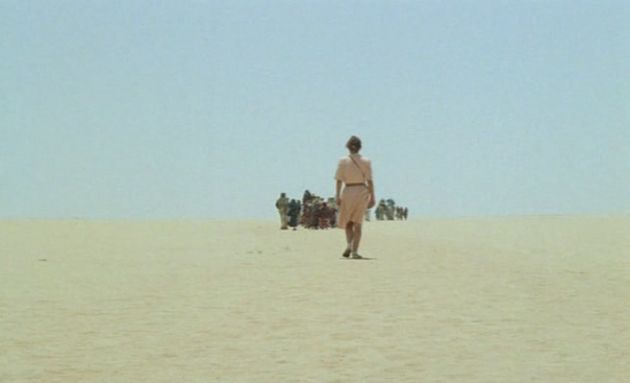
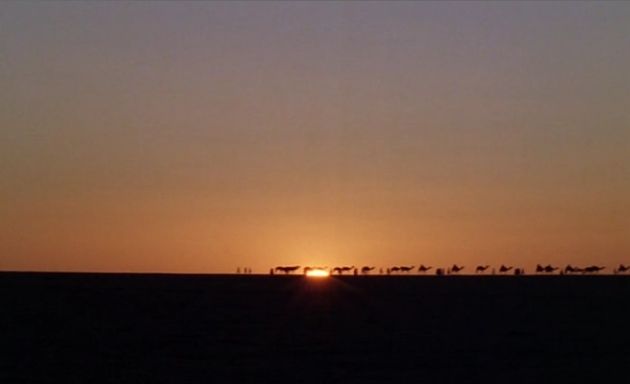
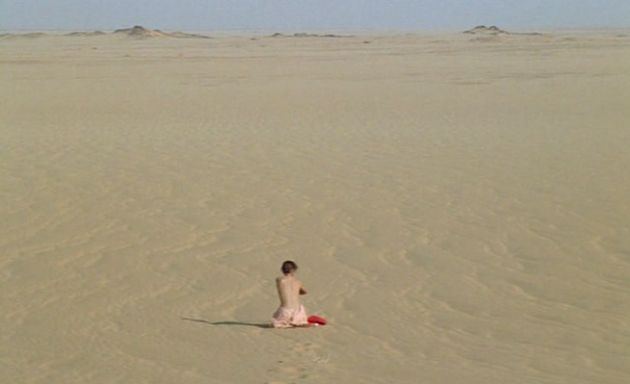
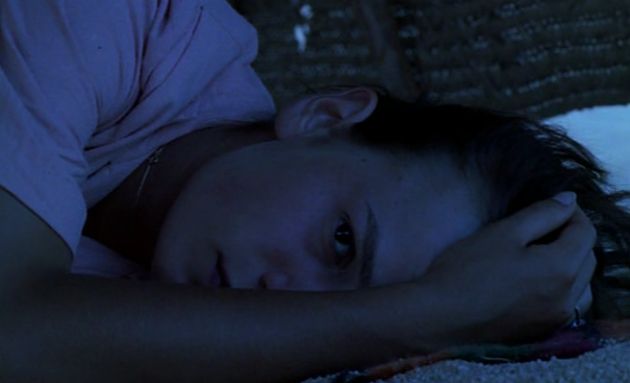
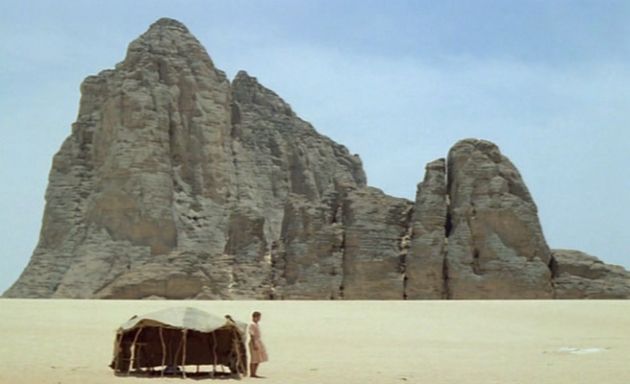
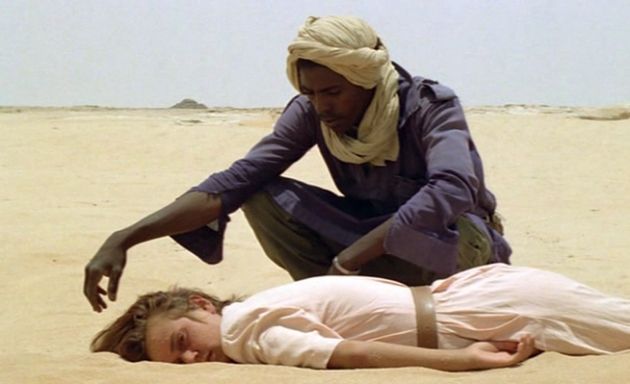
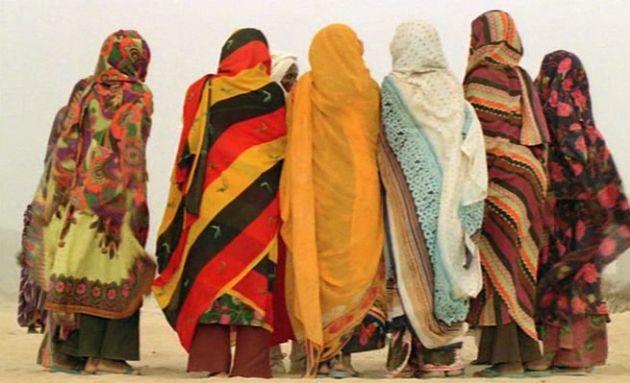
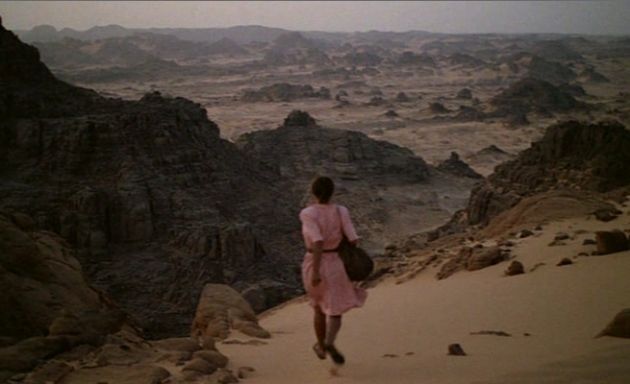
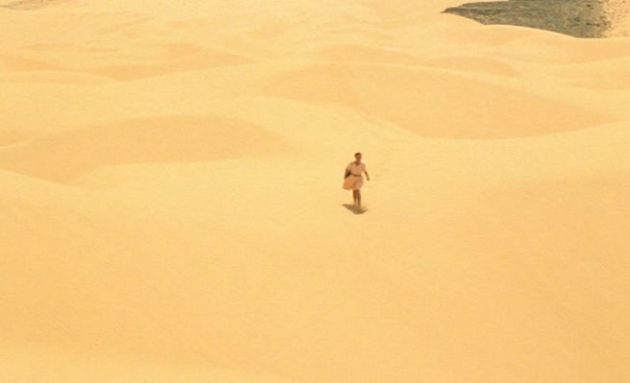
A white woman (Sandrine Bonnaire) is taken hostage by a caravan of AK-47 wielding soldiers and their families into the Saharan desert. We don't exactly learn what the situation is. There are slight indications of who she is through her belongings- photographs of her teaching African kids, that she is married and so on. For all we know, she is just a pawn in some geo-political war. Not quite ethnological study (although there are a lot of local inhabitants as extras featured), nor political thriller. The main draw here is the desert. Through photographer/documentarian Raymond Depardon's kin eye for composition, the desert turns on a harsher, gritty quality, rather than the mythic beauty usually associated with the Sahara. It is still very beautiful, especially when Bonnaire's character escapes, albeit briefly, after long monotonous routine, to the open, rocky desert. Depardon doesn't idealize or romanticize it. He just lets it play out. A beautiful film.
No comments:
Post a Comment